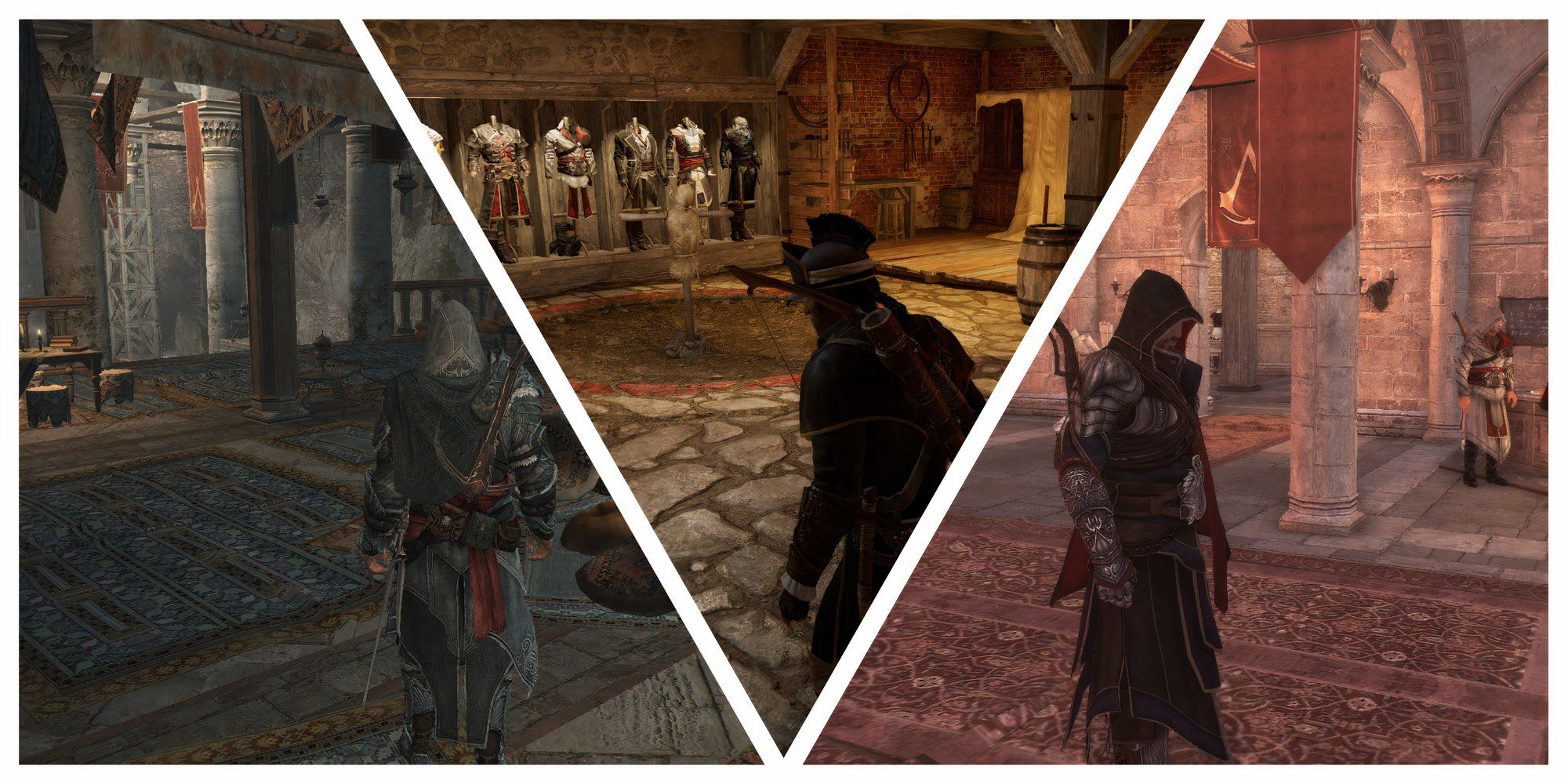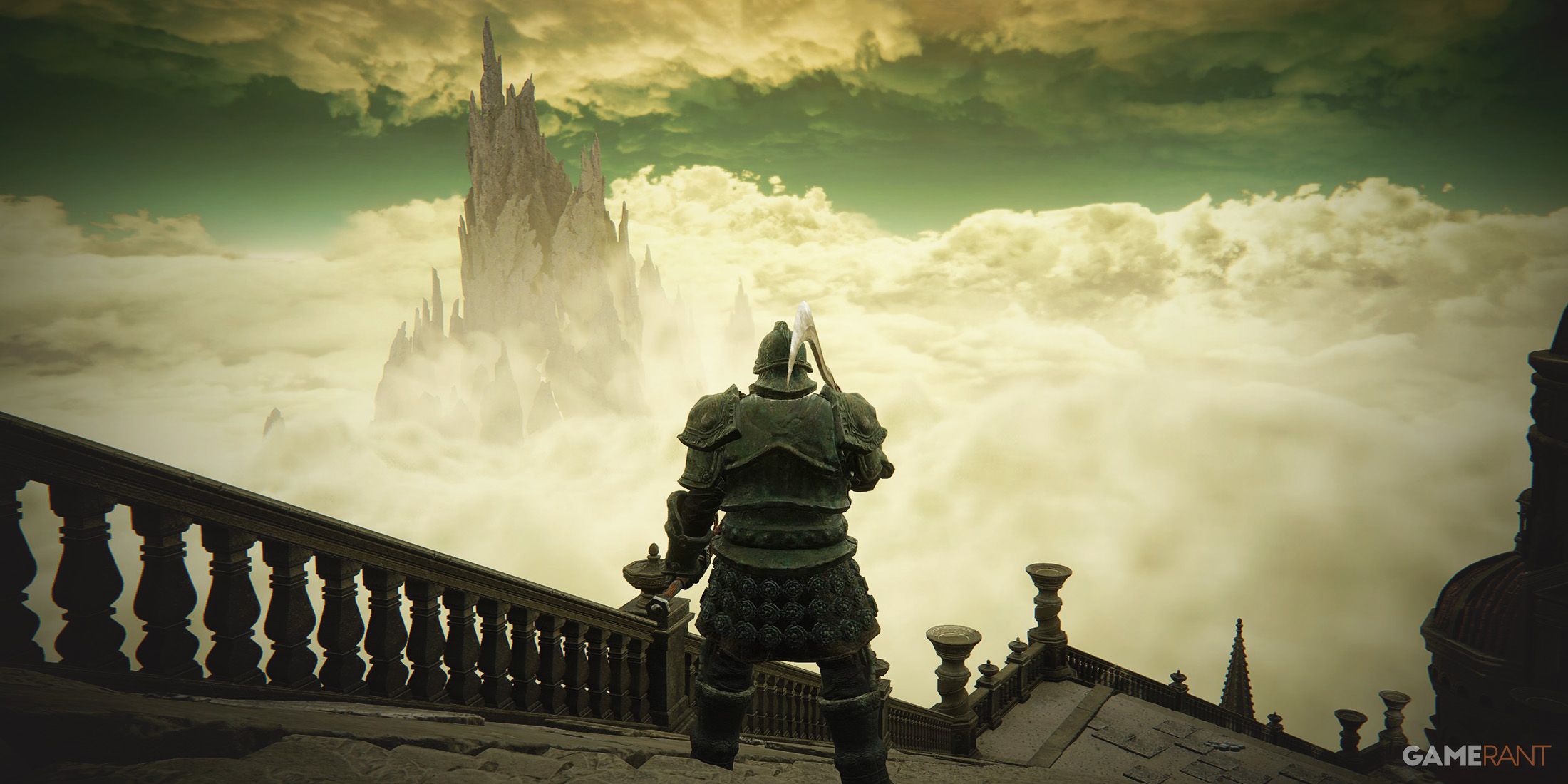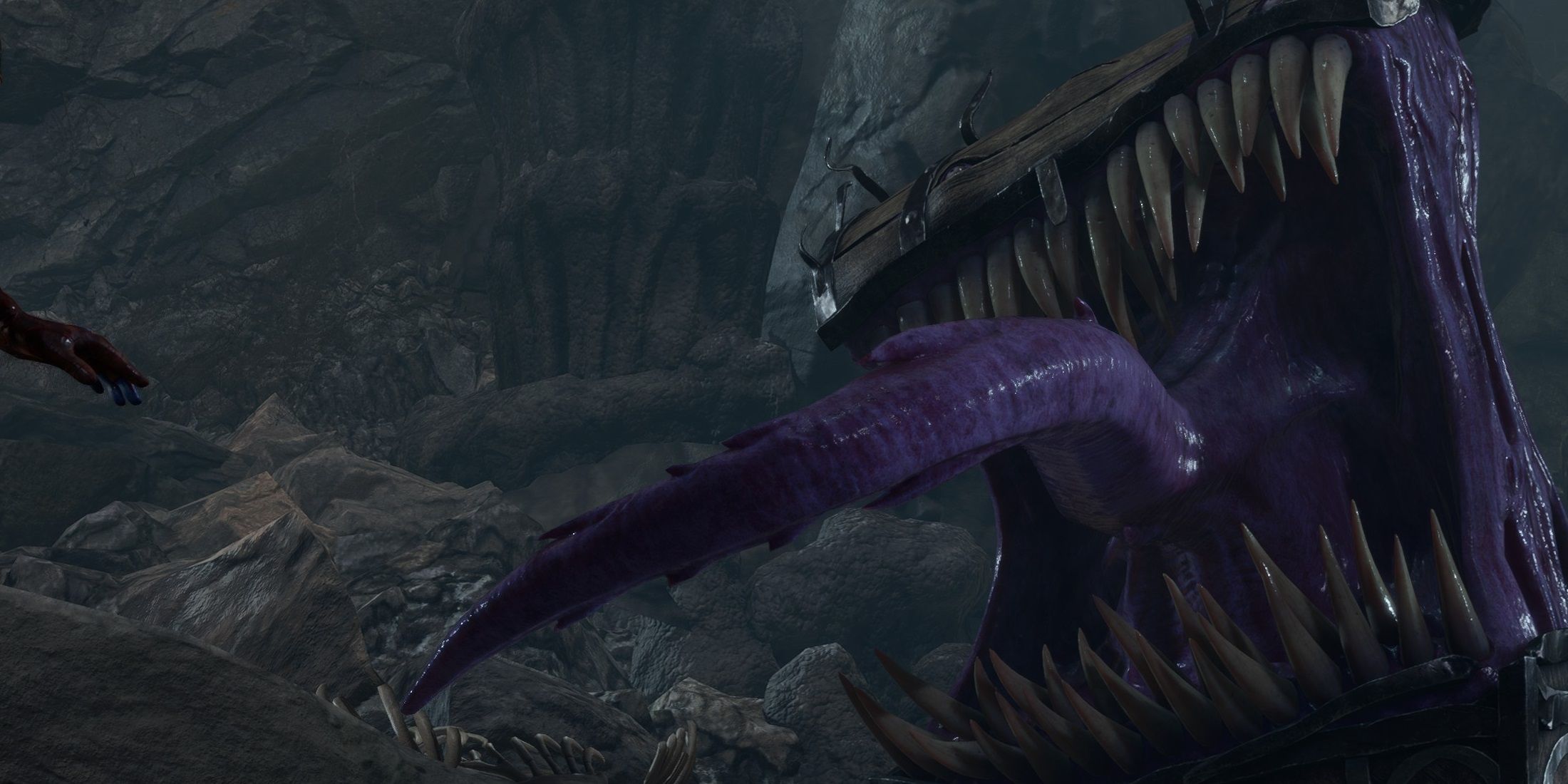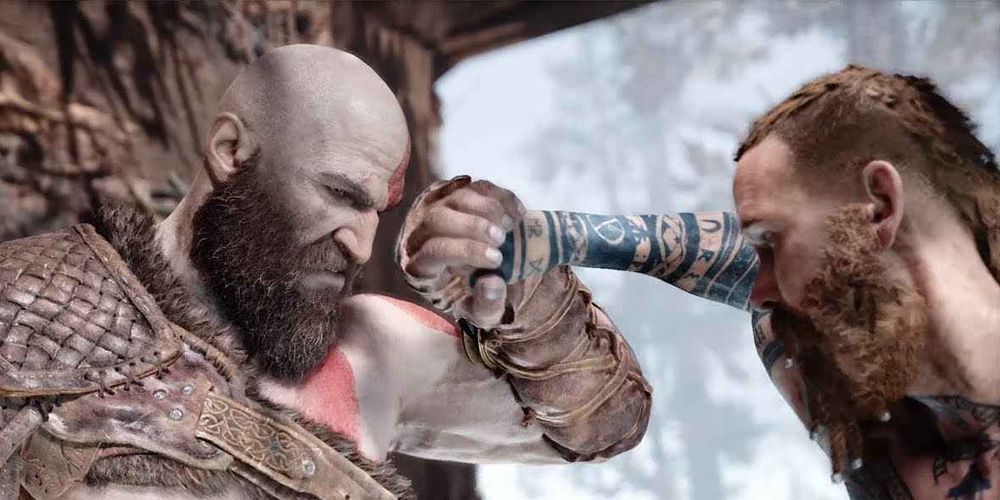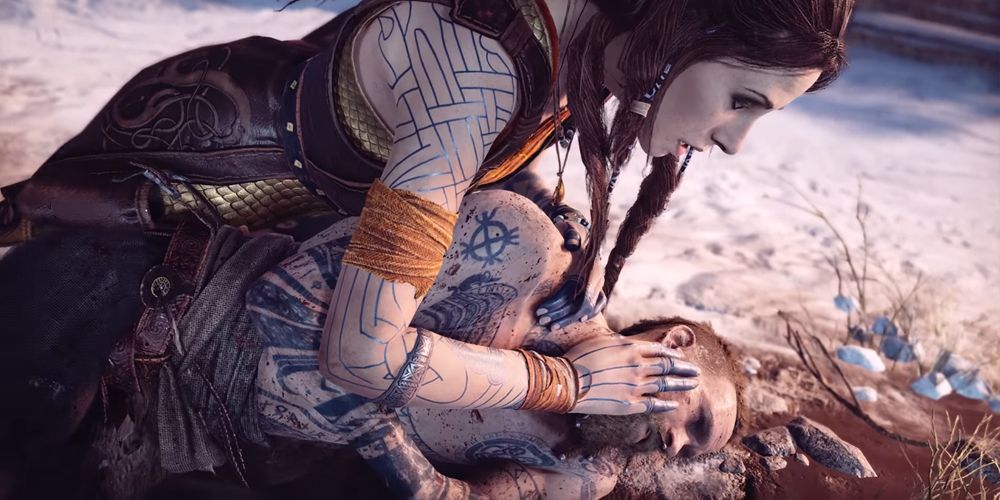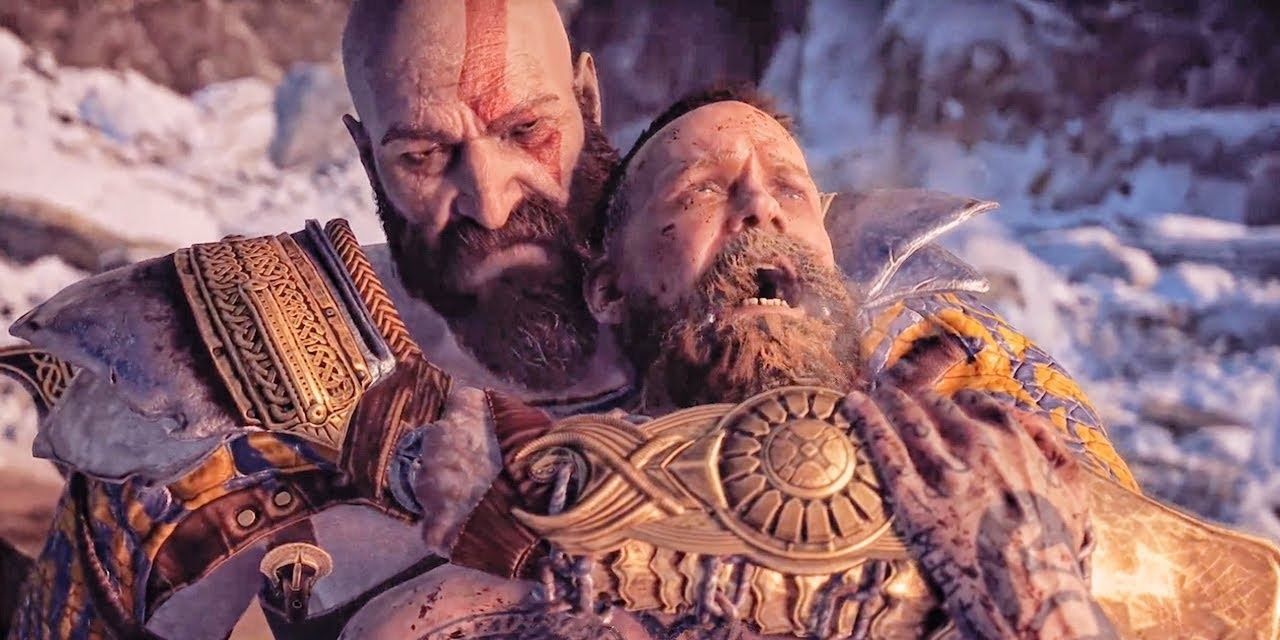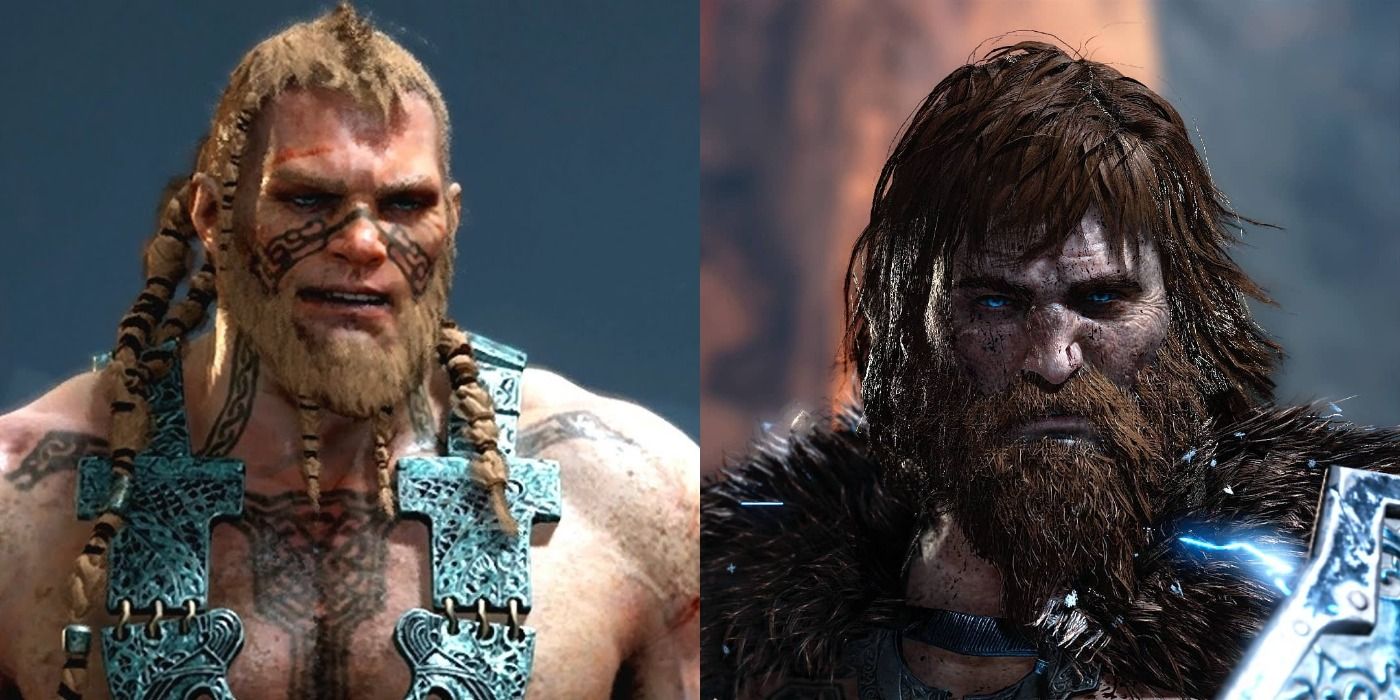In God of War, Baldur has a more restrained, if equally ruthless, demeanor to his two Aesir nephews. Years of invincibility and lack of sensation from his curse of protection have entirely worn away his personality and mental state. His primary mode of operation combines the fearlessness of someone spoiled by invulnerability with a lack of human connection to create a toxic mix of high-functioning derangement.
In short, Baldur's personality is an intensely poisonous mix of arrogance, hatred, self-loathing, and psychopathy; a dangerous combination at best and a harbinger of existential doom at worst. His personality and mental state make him a great antagonist in God of War, opposing Kratos' arrogance and strength.
Baldur's Fighting Spirit
Baldur's invulnerability informs him as a tracker and combatant. He is rightfully unafraid of the consequences of any fight, and he is frequently not in a hurry to catch the people Odin has assigned him to track, nor is he concerned with quickly killing those he catches up to. He toys with his quarry, is generally unconcerned with diplomacy, and is accustomed to getting what he wants through sufficient amounts of bullying and force, as evidenced by how he treats his first encounters with Kratos.
This spoiled nature is most evident when something does not go his way. Whenever Kratos uses his Spartan rage, or when Kratos does not relent in the final fight, any unpleasant surprise always gives way to anger. Instead of growing or improving as a fighter, it fosters a growing resentment toward Kratos as they encounter each other more.
Baldur's Complicated Relationship With His Mother
Freya, Baldur's mother, is the most influential member of his family. While Baldur has a deep hatred and resentment for almost everything, Freya is the object of his most tremendous resentment. According to a vision in Helheim, Baldur's greatest regret was not murdering Freya years ago. He angrily attacks Freya's vision, and after reuniting with her, he does not hesitate to rebuke her attempts at reconciliation, berate her, and eventually try to kill her.
The curse of protection, bestowed upon him by Freya, accounts for much of this. Baldur was a normal, kind, and innocent child who gave his mother a beaded necklace and a bracelet he had presumably crafted himself. However, when he was cursed, it took away his ability to feel anything. His self-hatred stems from this because his desire to kill Freya, who is expected to find redemption, was motivated by his passion for vengeance, and his failure to do so is why he sees himself as a coward.
Baldur's Suffering
Baldur ultimately lives a life of joyless limbo, endlessly sustained by the curse, his status as an Aesir, and his irascibility. This is most evident when he is finally defeated and at Kratos' mercy; there is no hesitation as he demands Kratos to end his life. His resentment of Freya's role in keeping Kratos at bay only adds to this.
Baldur exhibits change on one occasion: when the curse of protection is broken, he enters a state of manic sensory euphoria at the rush of sensations. All feelings, but especially extreme ones like pain, gave him an ecstatic rush, making him more aggressive and fearless than before. He relentlessly seeks to pummel Kratos during this fight, craving the sensation of both delivering and receiving blows.
Baldur appeared to be genuinely grateful to Kratos and Atreus for accomplishing what even Odin couldn't, despite the fact that he still wanted to kill them both after being freed. Before he died, his final moments were filled with joy as he relished the sensation of snow on his face.
Baldur's Contempt For His Family
Aside from his dislike for his mother, Baldur is also dissatisfied with his family as a whole. Despite their strength and skill, he does not hesitate to refer to his nephews, Magni and Modi, as "idiots" who serve as his lackeys. He has a good relationship with his brother Thor, so Magni and Modi are assigned to him. But, on the other hand, Baldur recognizes his brother's propensity for destruction, bloodlust, and genocide, and is happy to use this as a point of distinction between them.
In terms of his father, Odin deceives and manipulates Baldur with apparent regularity, dangling a cure for his condition as a carrot to persuade him to track down and find those he seeks, such as Kratos and Laufey. However, despite Odin's manipulations, Baldur appears to be aware of the impossibility of finding a cure and does not seem to completely trust in his father's ability. Nevertheless, Baldur was shown to be willing to carry out his father's wishes to some extent, even after being cured by attempting to kill Kratos and Atreus.
Baldur's family resembles other godly families seen in the God of War series: a petty, highly dysfunctional, and frequently violent group of damaged yet influential individuals. Baldur's murderous relationship with his mother is thematically similar to Kratos' relationship with his father, and it represents the series' Cycle of Parricide.
God of War is now available on PC and PS4.

